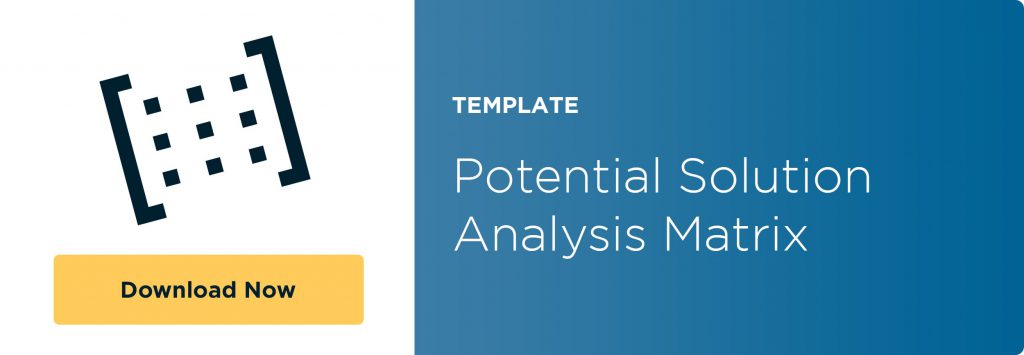Data Analytics: Are You Missing the Boat?
By John Gaul
There you are, in front of your computer, staring at a database with dozens of columns and thousands of rows of data—and all you can think to do next is: scratch your head or go grab another energy drink.
Or you’re a developing leader in your organization, and have accepted the challenge of growing market share and revenue for a specific segment. But you have already leveraged every good idea you and your team have ever come up with. Where will the next strategic idea come from?
Like the potential energy stored in millions of gallons of water behind a hydroelectric dam, there is power stored in data of all kinds—and most businesses simply lack the ability to tap into it.
Perhaps you’re a small business or start-up owner with an exciting and profitable value proposition. You’ve gathered some market research data, but you’re stuck on what to do with it and how to communicate your passion to the stakeholders you need to help you launch a new endeavor.
You are not alone. We all know that there is a proliferation of data all around us these days, and its volume is growing at an exponential rate. We can get to the data if we know how. We have computing power and no shortage of specialized software applications available to do the job. So what’s lacking?
Like the potential energy stored in millions of gallons of water behind a hydroelectric dam, there is power stored in data of all kinds—big or small. And most businesses simply lack the ability to tap into it. So what can you do about it?
Get Some Data Analytics Training!
No, you don’t have to sign up for 4 or 5 years of university to achieve a degree in data science. In reality, there are a few widely used and very effective fundamental methods that can be learned in just a few days of applied learning.
For example, one method, regression analysis, is estimated to be used to solve over 75 percent of common business analytics problems or questions. Regression analysis can be learned in a couple of days and doesn’t require fancy software—you can do it in Microsoft Excel! And you don’t need high-level math or statistical skills. You just need a bit of comfort with those topics, and willingness and passion to learn skills that allow you to tap into that data power.
There is a shortage of business people with analytical skills for handling complex data sets—a big shortage! And it may take another 15 to 20 years to fill the gap. Having these skills now would certainly set you several steps ahead of your competition, or at the least, put your career in high gear.
What Would a Fundamentals Course in Data Analytics Get You?
Since regression analysis was already mentioned, let’s start there. Regression analysis is commonly used to quantify patterns found in data, aka, “modeling.”
This approach can be used to:
- Discover, understand and quantify relationships between two or more variables, such as relationships between revenue and specific customer demographics.
- Build predictive models for key inputs and outputs, such as sales volumes based on advertising of product/service variations you offer.
- Build predictive models for time series-based data sets to see trends and seasonality in revenue, expenses, etc.
- Find optimal or peak performance “sweet spots” in order to optimize staffing schedules, discount promotions, or timing of advertising efforts
- Do all of the above with continuous or discrete data types, or a blend of the two.
Other fundamental topics that would keep you from missing the boat are:
- How to plan the analytical approach for your business situation
- How to quickly and easily obtain, merge and manipulate data sets
- How to cleanse and prepare data for analysis
- Initial exploration of data, without preconceived notions (fun stuff!)
- How to discover specialized groups or clusters in data, for targeted marketing, for example
- Analysis of time-series/seasonal data for trends and pattern recognition
- Powerful visual presentation of data
- Sifting through social media data to find meaning, patterns and common themes
If you acquired these skills in today’s data-rich environment (you might say data-driven economies), you would be in a power position of unique advantage in your business and career. Add to this skill set your own collective experience, business acumen, industry and market knowledge, technical training and most of all passion and you will not just be ON the data boat—you will be captain!
“Yeah right,” you’re thinking. “That list above would take months of grueling work to learn, and expensive software that I can’t afford.”
Not so! The Lean Methods Group offers DataMaster, a course that covers every topic listed above, and more, through hands-on interactive learning in the classroom with other business professionals—all facilitated by industry experts with many years of experience.
What About the Software?
This course is taught mostly in Microsoft Excel, with some introductions to two free software products: Microsoft Power BI and R. The Lean Methods Group also introduces its own powerful artificial intelligence software—RapAnalyst—at a reasonable price. RapAnalyst applies simple yet stunning visual power for data mining, analysis and predictive modeling.
So if you’re tired of glaring at your data, rubbing your chin and wondering what to do next, gain the essential skills that are in such demand and in low supply in our data-rich world!
John Gaul is a principal with the Lean Methods Group. Connect with John on LinkedIn.

